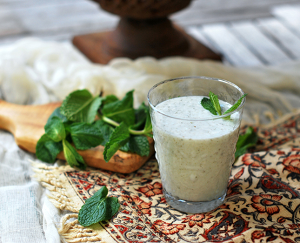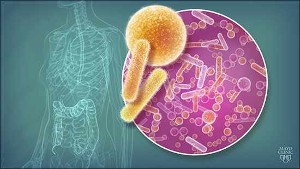|
Thanks to scientists, we now know that the good bacteria in our gut do much more than helping with the absorption of nutrients and vitamin and minerals etc. In fact, an overgrowth of bad bacteria leads to many diseases, including those that are autoimmune. These can be due to the absence or low level of good bacteria in the gut. This imbalance or dysbiosis can play a leading role in development of autoimmune diseases. The findings are amazing, and it is groundbreaking to know that the microbiome in our guts can have a significant link to autoimmune diseases, from Autism to Alzheimers and Parkinsons to host of other diseases.
In an article I published in June 2014, I wrote about probiotics and prebiotics, as well as how a Russian scientist, Elli Metchnikoff, brought attention to the role of gut bacteria when he noticed how individuals in Bulgaria who eat yogurt live longer and conduct healthy lives.

In a study by Gabryszewaski SJ, published in the Journal of Immunology in 2011, a group of mice were fed probiotic enriched food containing Lactobacillus. At the end of 13 weeks, scientists concluded:
“In summary, we have identified and characterized an effective Lactobacillus-mediated innate immune shield, which may ultimately serve as critical and long-term protection against infection in the absence of specific antiviral vaccines” showing the effectiveness of bacteria in fighting infections.
In another study conducted in New Zealand, within a group of thirty rugby players, half were given a probiotic and half were not. Within the group that were not given the probiotic, 83% contracted a cold where in the group that received the probiotic, only 53% got sick(receiving 3 billion CFUs/day). In other words, 30% less people demonstrated cold symptoms when they received the probiotic compared to the group that did not.

Dr. Payami, Ph.D., a professor in the Department of Neurology at the University of Alabama School of Medicine, studies microbiomes. She studied 197 Parkinson patients and 130 control groups and noticed a huge difference in their microbiome. There seemed to be growing evidence that link neurodegenerative disease, such as Parkinson's, to the composition of gut bacteria.
According to her study, Doctor Payami and her team of researchers are not sure at this point what comes first, whether Parkinson's causes changes in the microbiome or vice versa. Regardless of this, it is known that first sign of Parkinson’s often is inflammation, constipation, or other gastrointestinal ailments.
In another important research experiment conducted by the University of Iowa and Mayo Clinic in Rochester, researchers found out P.Histicola, a bacteria that exists in the gut, can not only lower certain types of pro-inflammatory cells in guts but also increase the T cells or killer cells that are very important in fighting bacteria. Dr. Murray, one of the investigators on this study stated: "If we can use the microbes already in the human body to treat human disease beyond the gut itself, we may be onto a new era of medicine. We are talking about bugs as drugs".
Indeed it looks as if we are approaching a new era. After all, putting the old saying in practice, “we are are what we eat”, or shall we say, we are the result of a balance of bacteria in our inner ecosystem?
Thanks for visiting www.curenaturally.org.
Ashraf Girgis N.D.
|